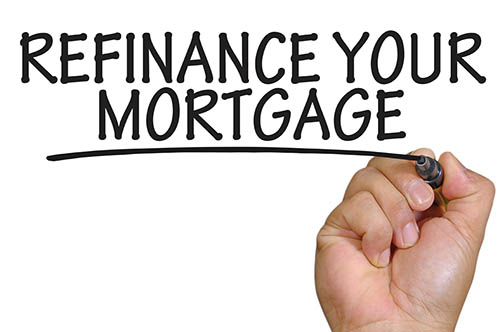Should You Pay Your Mortgage Bi-weekly or Monthly? Let’s Take a Look
 Most homeowners look at their monthly mortgage payment as their largest cost per month, and something they must do to maintain a good credit history. However, you may have heard of bi-weekly mortgage payments and their ability to lower your debt load and help you pay off your mortgage more quickly. If you’re wondering if bi-weekly payments are too good to be true, here’s some information worth consideration.
Most homeowners look at their monthly mortgage payment as their largest cost per month, and something they must do to maintain a good credit history. However, you may have heard of bi-weekly mortgage payments and their ability to lower your debt load and help you pay off your mortgage more quickly. If you’re wondering if bi-weekly payments are too good to be true, here’s some information worth consideration.
What Difference Does Bi-Weekly Make?
Making a bi-weekly mortgage payment may seem to mean that your interest will be automatically reduced, but because the lender is not necessarily receiving that payment until the end of the month, this is not necessarily the case. However, while a typical monthly payment will equate to 12 mortgage payments per year, a bi-weekly payment means 26 half payments will be made each year, which equates to 13 months of payments and an additional month. As a result, this can reduce the amount of interest paid on the principal.
Consider More On A Monthly Basis
Bi-weekly payments have the ability to shave a bit off the principal and thereby lower overall interest, but that doesn’t mean you have to switch to paying every two weeks. Instead of bi-weekly, consider dividing your monthly mortgage amount by 12 and adding that amount to your monthly payment. This will bump up your mortgage cost per month, but it will also reduce the total amount you owe. For example, if your mortgage payment is $1200 per month, divide it by 12 to get $100, and add this to your payment, bumping it up to $1300 each month.
Be Aware Of The Options That Work For You
In the event that you decide to make bi-weekly payments, be aware that there may actually be additional fees associated with this offering that will nullify your money savings. As a homeowner, it’s important to stay aware of changes on the market and new mortgage offerings that can benefit you. However, it’s also important to ensure that whatever you choose, you’re aware of the risks involved so they can make for a positive financial shift.
Making a bi-weekly payment on your mortgage may have the benefit of lowering your overall home cost, but you may be able to get this benefit from simply bumping up your monthly payment. If you’re currently looking for a mortgage lender, contact one of our mortgage professionals for more information.

 If you’re currently buying a home and are stressing about the kind of home to choose and which lender to go with, it can help to clear up some of the confusion surrounding the mortgage process. While mortgage applications are assessed on a case-by-case basis, here are some factors you’ll want to avoid so the timeline of your approval isn’t negatively impacted.
If you’re currently buying a home and are stressing about the kind of home to choose and which lender to go with, it can help to clear up some of the confusion surrounding the mortgage process. While mortgage applications are assessed on a case-by-case basis, here are some factors you’ll want to avoid so the timeline of your approval isn’t negatively impacted. When it comes to your mortgage, there are a lot of key terms that are important for every homebuyer to know, and this is no less true than when it comes to refinancing your most important investment. Instead of leaving what’s unknown up to chance, it’s important to be aware of exactly what you’re looking at so you can get the best mortgage product available. If you’re currently considering refinancing and don’t want to get snared by unknown terminology, here are some terms you’ll need to watch out for.
When it comes to your mortgage, there are a lot of key terms that are important for every homebuyer to know, and this is no less true than when it comes to refinancing your most important investment. Instead of leaving what’s unknown up to chance, it’s important to be aware of exactly what you’re looking at so you can get the best mortgage product available. If you’re currently considering refinancing and don’t want to get snared by unknown terminology, here are some terms you’ll need to watch out for.